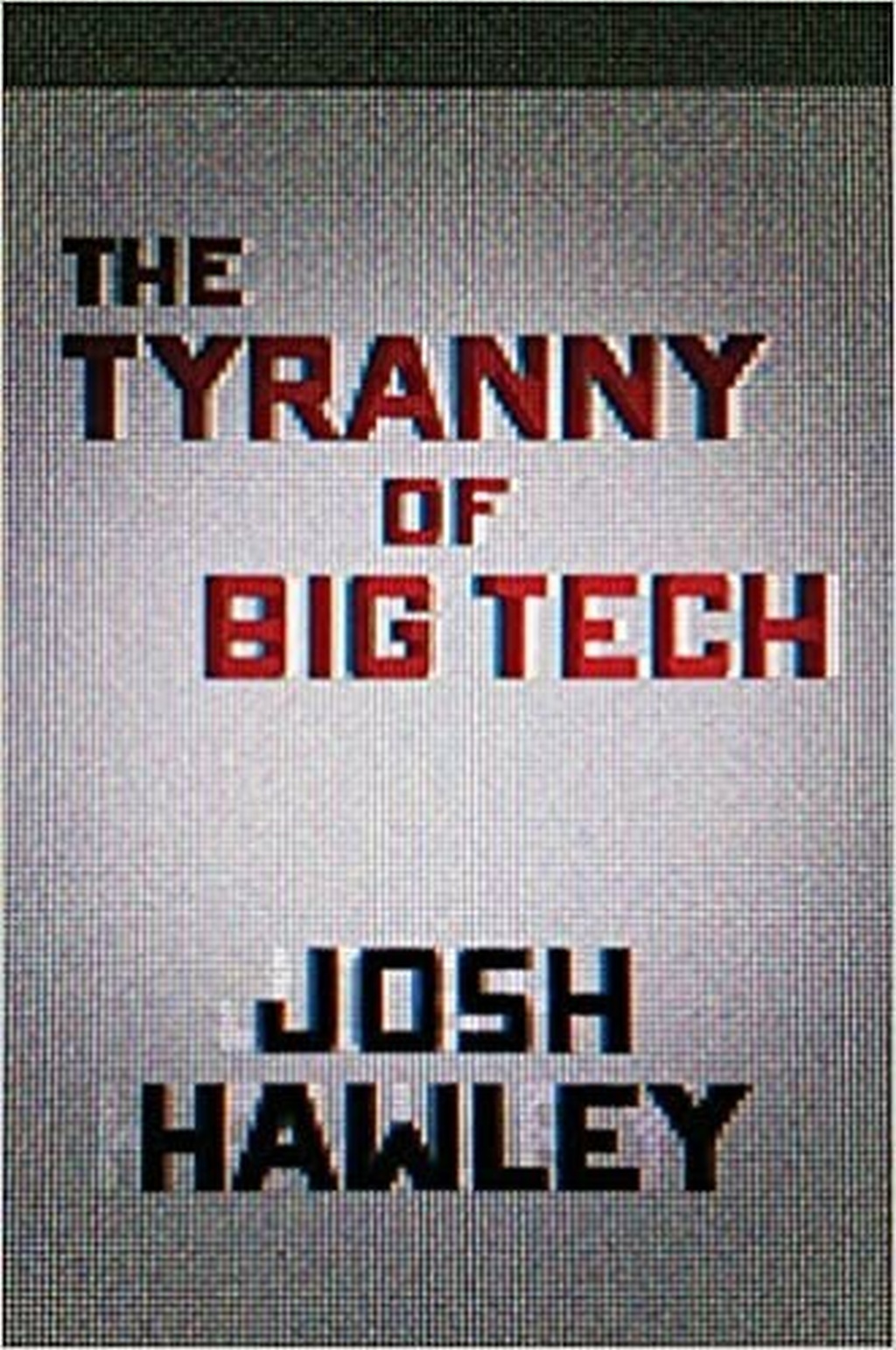
"The Tyranny of Big Tech" by Sen. Josh Hawley (Book Review)
Never in history has so much wealth and power been heaped up by so few, to the detriment of so many. The few, of course, are the oligarchs who run Big Tech.

- Lee Duigon
The Tyranny of Big Tech by Sen. Josh Hawley
(Washington, D.C.: Regnery Publishing, 2021)
In a fallen world saturated with Original Sin, how safe is it for the rest of us if very small tribes of insiders have unbridled power to do anything they please?
That’s the problem in a nutshell. Never in history has so much wealth and power been heaped up by so few, to the detriment of so many. The few, of course, are the oligarchs who run Big Tech.
Which leads to them running whole countries someday, including ours; and ultimately (they hope) to a global government—owned and operated by themselves.
How could they do this?
Infinite Wealth
First, they have virtually infinite wealth. From time to time, both the European Union and the U.S. government have fined the tech giants billions of dollars/euros at a clip for various infractions.
If they can’t buy off the regulators, they simply pay the fines and continue on their merry way. For an ordinary corporation, a five-billion-euro fine would be calamitous, maybe even fatal. But for Google et al., it’s pocket money. They can earn it back before the day is out.
They wouldn’t laugh it off if Facebook honcho Mark Zuckerberg, for instance, were to be packed off to a federal prison for some of his shenanigans. But with Facebook’s power to dole out money for political campaigns and good or bad publicity, who’s going to put the zillionaire magnate on trial—let alone in jail?
Tailor-Made Advertising
Thanks to favorable legislation—like the exemption from the kinds of lawsuits faced by regular publishers—enacted over the years, Big Tech is virtually immune to any kind of accountability. They have used their special status to acquire indescribably vast wealth.
How do they do it?
With the host of electronic gadgets they sell to the public, they can keep track of everything a user reads, views, buys, sells, queries, says, and does online. With their unlimited computer capacity, they can store more information than their billions of users, worldwide, can generate. They use that information to tailor advertising to the individual user, although they’ve repeatedly promised not to do that.
They also sell it—to whomsoever wants to buy it, for whatever purpose, good or evil, that they might have.
Hawley says Congress really must stop them from doing those things.
We Want What They Sell
Big Tech’s power over us rests on the fact that we want to buy what they have to sell. It’s seductive—toys, games, videos, easy communication with friends and family, this or that hot new device that we simply have to have: you name it, Amazon is selling it. In fact, our various businesses and social and political networks couldn’t survive in today’s economy without a presence on the Internet. You wouldn’t be reading this review if Chalcedon didn’t have a website.
So we need what Big Tech has to offer, and they know it. Our need tempts them to exploit us—and how they’ve succumbed to that temptation!
In addition to luring us deeper and deeper into their trap with behavioral advertising, they’ve also given in to the temptation to abuse us politically, via censorship, slanted news, fake news, and a “cancel culture” that seeks out and destroys those whose opinions don’t line up with Big Tech’s own.
For almost to a man, or to a woman, Big Tech’s personnel are fully committed leftists, out to change the world according to their vision of what the world should be. And if you want to see what that vision looks like, you have only to look as far as Communist China.
The Tower of Babel Revisited
I was confused for a time by Hawley’s message. Congress, he says, should do this, do that, to break down Big Tech’s power over us. But if Congress is in bed with the tech giants, how will that legislation ever happen?
But then I realized something startling.
It doesn’t matter whether Hawley succeeds or fails in mobilizing Congress.
In a way, he’s already succeeded. Big Tech tried, and failed, to suppress this book. They could have just ignored him, but Hawley is a U.S. senator and they have to take him seriously. Somehow he threw a scare into them; and if they’re scared, that means that somewhere they have a vulnerability. And Regnery published his book; they couldn’t stop it.
Hawley has made himself a target, and he’s got their full attention. Which means that while their sights are trained on him, who knows what other opposition is sneaking up on them unobserved?
Big Tech has made a lot of enemies. Playing God will do that to you. Hawley’s book is selling very well, alerting thousands, if not millions, to Big Tech’s threat to our constitutional republic and our way of life.
The God who is the sovereign ruler of the world today is the same God who confounded human language and overthrew the first global government project, the Tower of Babel. More recently, think of the sudden extinction of the Soviet Union. Supposedly invincible in war, it fell to pieces without a war.
The higher they rise, the farther they fall.
No one knows how many unidentified men and women, how many potential Lech Walesas, today are searching for Big Tech’s Achilles’ heel.
And by the providence of Almighty God, they’ll find it.

- Lee Duigon
Lee is the author of the Bell Mountain Series of novels and a contributing editor for our Faith for All of Life magazine. Lee provides commentary on cultural trends and relevant issues to Christians, along with providing cogent book and media reviews.
Lee has his own blog at www.leeduigon.com.